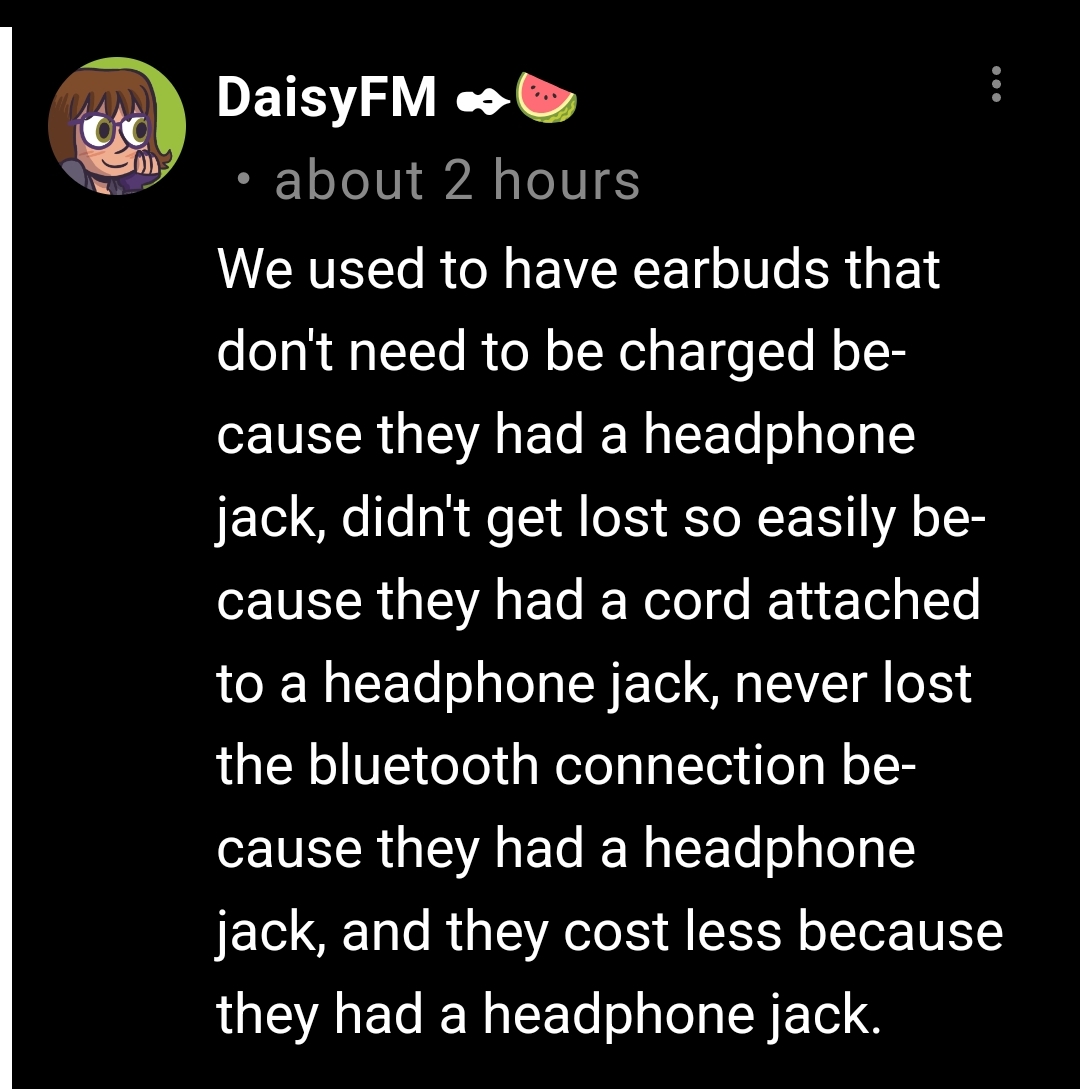this post was submitted on 08 Sep 2024
1634 points (95.2% liked)
Microblog Memes
5708 readers
3870 users here now
A place to share screenshots of Microblog posts, whether from Mastodon, tumblr, ~~Twitter~~ X, KBin, Threads or elsewhere.
Created as an evolution of White People Twitter and other tweet-capture subreddits.
Rules:
- Please put at least one word relevant to the post in the post title.
- Be nice.
- No advertising, brand promotion or guerilla marketing.
- Posters are encouraged to link to the toot or tweet etc in the description of posts.
Related communities:
founded 1 year ago
MODERATORS
you are viewing a single comment's thread
view the rest of the comments
view the rest of the comments

Which cannot connect to a phone unless it's unlocked, as accepting every USB-C connection carries security risks. They also require negotiation, which can fail at any time, meaning you have to unlock, disconnect, reconnect.
I also have a nice, external (and still cheap) DAC on my computer. It has a headphone jack. This means I need to be able to disconnect the USB-C dongle from my headphones, unless I want to have two separate headphones for my phone and my PC. By extension this requires me to go searching for the dongle from time to time.
I love USB-C. But the headphone jack had what companies and people claim to want: simplicity.
Headphone jacks solved a single but extremly common problem very well. USB-C provides a workaround for it.
that's really interesting. USB-C was meant to be the one peripheral to unite them all: data, video, audio.
But no one considered that video/audio don't typically need to be security vetted, so shovelling them down the same wire protocol as data makes them less useful not more, and now we have to solve a hardware problem with software to let a simple media piece through.
Our desire for tech unity has regressed us